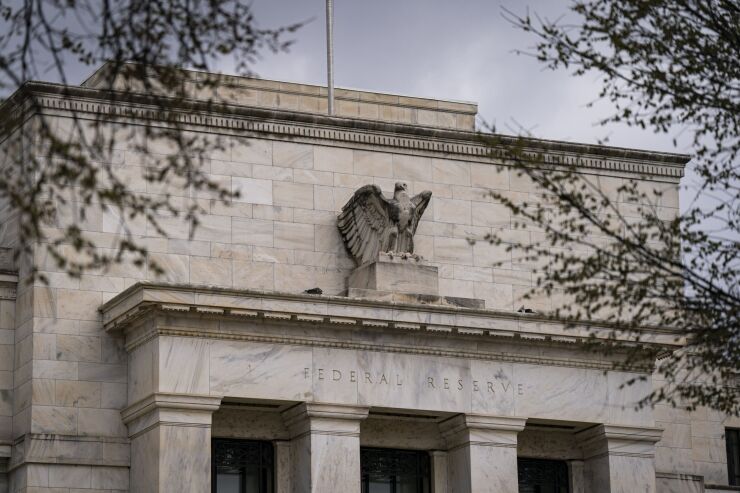
Federal Reserve Gov. Lisa Cook's attorneys filed additional briefs in her case against President Trump over his moves to oust her from her seat on the Fed board, and the judge overseeing the case has scheduled final briefs to be due Sept. 4.
Cook's attorney, Abbe Lowell, founder of Lowell & Associates, asked the court for additional time to file a brief in support of a temporary restraining order. The judge overseeing the case gave both Cook and Trump until Sept. 4 to file motions for or against the temporary order.
A joint status report shows that beyond an agreement that both parties will file additional documentation by Thursday, Cook and Trump do not agree on the steps that will follow beyond that.
Cook's attorney has proposed an expedited legal process in which opening motions and responses would be filed by Sept. 15, followed by a hearing soon after — potentially avoiding a trial. President Trump's legal team opposes the plan, arguing that while the legal issues related to Cook's request for emergency relief will be briefed by Sept. 4, the broader case requires discovery, including "the underlying facts giving rise to [the] termination."
Despite the lack of a ruling, a decision on whether or not Cook can continue serving on the board will likely be made before the Federal Open Market Committee meets on Sept. 16 and 17. The Federal Reserve has urged the court to expedite its decision making "to remove the cloud of uncertainty."
In a brief filed Tuesday, Lowell reiterated that President Donald Trump's attempt to oust Cook from the board over alleged mortgage fraud was unlawful and that she should be allowed to continue her work at the central bank.
In documents filed with the U.S. District Court for the District of Columbia Tuesday, Cook's attorneys argued that points made by Trump's
"Allowing the president to lock Governor Cook out of her office, even temporarily, would amount to a crack in the foundation of the Federal Reserve's near-century of independence," a filing from Sept. 2 reads. "That is a bell that could not be unrung, even if Governor Cook were ultimately reinstated.
"Governor Cook requests only that the court maintain the current state of affairs, as such a measure would uphold key equities and public interests, while imposing a minimal burden on the President, who is attempting to exercise power beyond his constitutional and statutory authority," the filing added.
Late last week,
"Dr. Cook identifies no irreparable harm that requires overnight relief, or even relief within the next 14 days," Trump's attorneys argued in an Aug. 29 filing
Her suit notes that the Federal Reserve Act only allows the president to remove a Federal Reserve Board governor "for cause," and argues that the allegations presented by Trump do not meet that standard.
This argument follows a widespread assumption that the suit will hinge on
The plot regarding Cook's alleged occupancy fraud has thickened as Bill Pulte, head of the Federal Housing Finance Agency, claimed Friday





